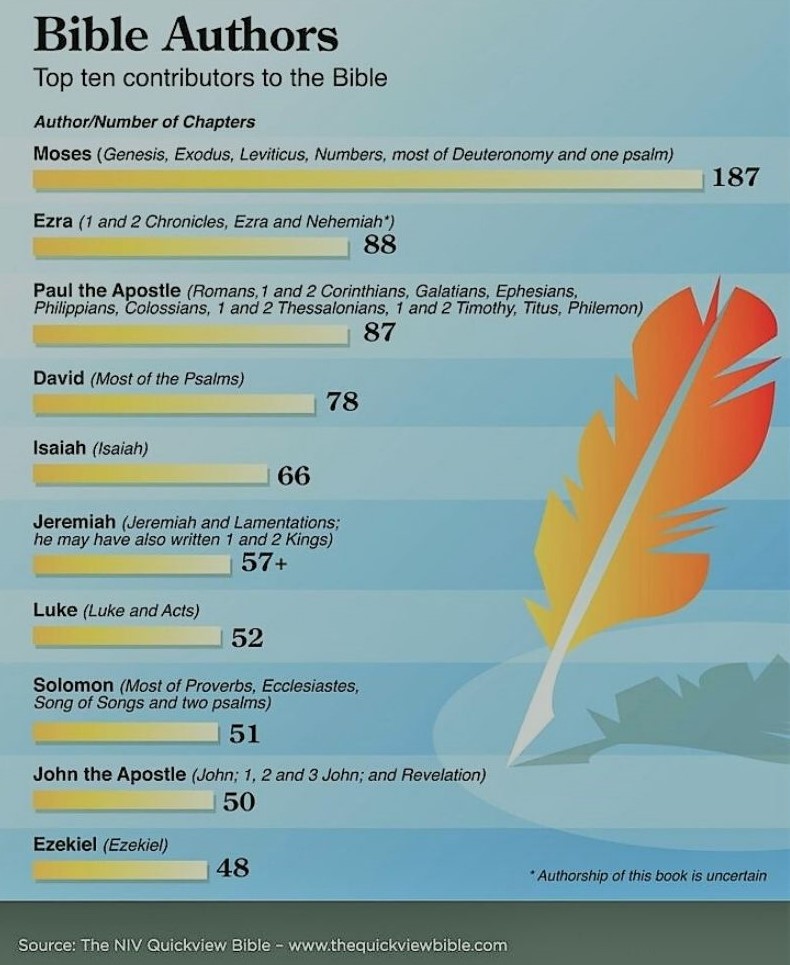In today’s age of increasing cultism, agnosticism, and skepticism, Christians are called on all the more to get answers to the questions being asked about faith, God, and the Bible.
Admittedly, most church members (and even many pastors) are not formally trained in defending the faith and hence cannot always answer tough questions they’re asked. Nevertheless, Christians are commanded to “always be ready to give a defense to everyone who asks you a reason for the hope that is in you, with meekness and fear,” (1 Peter 3:15) and also to “let your speech always be with grace, seasoned with salt, that you may know how you ought to answer each one” (Colossians 4:6).
These are commands not just to Christian leaders but to all believers as well. That is why the apostle Paul insisted that church leaders must “hold fast the faithful word as he has been taught, that he may be able, by sound doctrine, both to exhort and convict those who contradict” (Titus 1:9).
The Origin of the Bible
One of the areas that are mostly under attack is our belief in the Bible as God’s Word. And so, in this post, we will look at some of the tough questions being asked and give brief answers to them.

How and Where Did We Get the Bible?
We believe that the Scriptures came from God through men of God who wrote down the very words of God. That is, the Bible has a divine origin, even though it was produced through human instrumentality. But this belief occasions many questions from our culture. How and where did we get the Bible?
The Bible claims to have come from God. Speaking of the whole Old Testament, Paul wrote, “All Scripture is given by inspiration of God, and is profitable for doctrine, for reproof, for correction, for instruction in righteousness” (2 Timothy 3:16).
Even the New Testament is called Scripture. Paul cited the gospel as Scripture in 1 Timothy 5:18 and Peter referred to Paul’s epistles as Scripture in 2 Peter 3:15-16. So, both the entire Old and New Testaments, both Gospels, and Epistles are said to be writings that are “breathed out” by God.
Jesus used a similar expression when He referred to the Word of God coming out of the “mouth of God,” saying to the tempter, “Man shall not live by bread alone, but by every word that proceeds from the mouth of God” (Matthew 4:4).
Who Wrote the Bible?
Not only does the Bible claim to be a God-breathed writing, but it comes from Spirit-moved writers. Peter referred to the Old Testament prophets as men who were “carried along” by the Holy Spirit (2 Peter 1:21). David added, “The Spirit of the Lord spoke by me, and His word was on my tongue” (2 Samuel 23:2).
So, the Bible claims to have come from God through men of God.
The Bible was written by prophets of God. The ultimate source of the Bible is God, but men of God called prophets were the instruments God used to record His words. The role of biblical prophets was unique. They were the mouthpieces of God, commissioned to speak His words, nothing more and nothing less (Proverbs 30:6; Revelation 22:18-19).
The whole Old Testament was written by prophets, of which some of them were prophets by office, like Moses (Deuteronomy 18:15), who wrote the first five books of the Bible known as the Torah in Hebrew or Pentateuch in Greek.
Other Old Testament writers were prophets by gift, that is, they did not belong to the group or company of prophets. But God spoke to them and gave them a message to deliver to the people (Amos 7:14-15).
For instance, Daniel was a prince by profession (Daniel 1:3-6), but he became a prophet by calling and gift. Jesus Himself called him “the prophet Daniel” (Matthew 24:15). David was a shepherd boy, but God spoke to him (2 Samuel 23:2). Even Solomon, the author of Proverbs, Ecclesiastes, and Song of Songs, received revelations from God as a prophet does (1 Kings 3:5).
Likewise, all the New Testament writers were “apostles and prophets,” since the church was built on this foundation (Ephesians 2:20). They, too, claimed to receive their message from God. Paul, who wrote about half of the New Testament books, was considered to have written inspired Scripture in the same category as the Old Testament.
Matthew and John were among those Jesus promised to lead into “all truth” and bring to their remembrance whatever He taught them (John 16:13, 14, 26) while Peter, who was one of the chief apostles, wrote two books based on his credentials as an apostle and eyewitness of Jesus (1 Peter 1:1; 2 Peter 1:1, 16).
The rest of the New Testament writers were associates of the apostles and prophets by gift since God spoke through these servants of Jesus as well (James 1:1; Jude 1 – 3).
Biblical Authors: Mere Secretaries of the Holy Spirit?

The authors of the Bible did not simply take dictation from God. They were not mere secretaries or automatons, but they were faithful to proclaim the whole message from God without adding to it or taking away from it (Proverbs 30:6; Revelation 22:18-19).
God used the individual personalities, vocabularies, literary styles, and conscious desires of the biblical authors to produce the Bible. Thus, while being completely from God, the words of Scripture are also human words in particular human languages expressed in distinctive human literary forms.
Nonetheless, the final product is exactly as God-ordained and providentially superintended it to be – the divinely authoritative, infallible, and inerrant Word of God. For the Scripture “cannot be broken” (John 10:35) or “disappear” (Matthew 5:18).
The Word of God is the “truth” (John 17:17) that comes from a God for whom “it is impossible … to lie (Hebrews 6:18. In short, it is without error in whatever it affirms, not only on spiritual matters but also on science (Matthew 19:12; John 3:12) and history (Matthew 12:40-42; 24:37).
In short, the writers of the Bible were humans that God chose to be His mouthpiece through the use of human language and literary forms.
How Did the Prophets Get their Message from God?
The prophets received their message from God in various ways. Some received them in dreams (Genesis 37:1-11), others in visions (Daniel 7:1-28), and some even by audible voice (1 Samuel 3:1-14) or an inner voice (Hosea 1:1-11; Joel 1:1-20).
Others received revelations from angels (Genesis 19:1-29), some by way of miracles (Exodus 3:1-22), and others by way of the lot (Proverbs 16:33). The high priest used jewels known as the Urim and Thummim (Exodus 28:30). And still, God spoke to others as they meditated on His revelation in nature (Psalm 8:1-9; 19:1-6).
Whatever the means, as the author of Hebrews put it, “God, who at various times and in various ways spoke in time past to the fathers by the prophets” (Hebrews 1:1).
Could Prophets Change or Add to God’s Message?
No, they were forbidden to do so. Biblical prophets were not to add, subtract or tamper with the text of sacred Scripture (Deuteronomy 4:2; Jeremiah 26:2; Proverbs 30:5-6). God dealt severely with anyone who attempted to change His words (Jeremiah 36:28).
The nature of a biblical prophet guaranteed that he would not add his thoughts to God’s message, for he is one who speaks “everything the Lord has said” (Exodus 4:30). The very nature of a prophet also demanded that a prophetic writing is exactly what God wants to say to mankind.
And since the Bible is presented as a prophetic writing from beginning to end (Matthew 5:17-18; 2 Peter 1:20-21; Revelation 22:9), it follows that the written record of the prophets was considered inspired by God.
Take John’s warning about the words of prophecy in Revelation 22:18-19. This didn’t mean that they could not receive new revelations, but that they could not tamper with old ones.
The Nature of the Bible
Since the Bible claims to come from God, it asserts a divine authority. It claims to be the very word of God (John 10:34-35). But since the Bible was also written by human beings, what does it mean when we call it “God’s Word?”
What Does it Mean that the Bible is the Word of God?
Since God is the source of the Bible, it is appropriate to call it His Word. But since human writers composed every word in the Bible, it is also true that it is their word. Hence, one way to describe what is meant when the Bible claims to be “God-breathed” (2 Timothy 3:16) is this: “What the Bible says, God says.”
This is manifested in the fact that often an Old Testament passage will claim that God said it, yet when this same text is cited in the New Testament, it asserts the “the Scripture(s)” said it. Consider these comparisons:
What God says The Bible says
Genesis 12:3 Galatians 3:8
Exodus 9:13, 16 Romans 9:17
In Genesis 12:1-3, it is God speaking. But when this is cited in Galatians 3:8, it says it is the Scripture… preached the gospel to Abraham.”
Also, in Exodus 9:13-16, it is the Lord speaking. However, when the New Testament quotes this passage, it says, “For the Scripture says to Pharaoh, ‘For this very purpose I have raised you up, that I may show My power in you, and that My name may be declared in all the earth’” (Romans 9:17).
At times the reverse is true. For instance, in the Old Testament, it is the Bible that records it, but the New Testament declares that it was God who said it.
What the Bible says God says
Genesis 2:24 Matthew 19:4-5
Psalm 2:1 Acts 4:24-25
Isaiah 55:3 Acts 13:34
Psalm 16:10 Acts 13:35
Psalm 2:7 Hebrews 1:5
In Genesis 2:24, the Bible says, “Therefore a man shall leave his father and mother and be joined to his wife, and they shall become one flesh.” But when this was cited by Jesus in the New Testament, He said, “Have you not read that He (God) who made them at the beginning ‘made them male and female,’ and said, ‘For this reason a man shall leave his father and mother and be joined to his wife, and the two shall become one flesh’” (Matthew 19:4-5)?
Noted theologian B. B. Warfield made this observation:
“In one of these classes of passages the Scriptures are spoken of as if they were God; in the other, God is spoken of as if He were the Scriptures. In the two taken together, God and the Scriptures are brought into such conjunction as to show that in point of the directness of authority no distinction was made between them.”
How Else Does the Bible Claim to be the Word of God?
The Scriptures claim to come from God by means of phrases such as “says the LORD” (Isaiah 1:11, 18), “declares the LORD” (Jeremiah 2:3, 9), “God said” (Genesis 1:3, 6), “this word came to Jeremiah from the LORD” (Jeremiah 34:1), and “The word of the LORD came to me” (Ezekiel 30:1).
Such phrases are found hundreds of times in Scripture and reveal beyond question that the writer is affirming that he records the very word of God. In the book of Leviticus alone there are some sixty-six occurrences of phrases like “the LORD said to Moses” (Leviticus 4:1; 5:14; 6:1, 8, 19; 7:22).
Related Article: The Different Forms of the Word of God
Ezekiel also records countless times phrases like “I saw visions” or “the word of the LORD came to me.” Five times in twenty-eight verses of chapter 12, Ezekiel says, “The word of the LORD came to me” (Ezekiel 12:1, 8, 17, 21, 26), and four times he writes, “This is what the Sovereign LORD says” (Ezekiel 12:10, 19, 23, 28).
And in verse 28 he uses the combination, “This is what the Sovereign LORD says” and “declares the Sovereign LORD.”
Isaiah (Isaiah 1:1, 11, 18, 24; 2:1), Jeremiah (Jeremiah 1:2; 13; 2:1, 3, 5), and other prophets make similar statements. The overall impression leaves no doubt as to the confessed source in God Himself of the messages of the prophets.
Does the Bible Actually Claim to be the “WORD of GOD” in so Many Words?
Yes, it does! Many times, the Bible claims to be the “Word of God” in these very words or their equivalent Jesus told some of the Jewish leaders of His day, “Thus you nullify the word of God for the sake of your tradition” (Matthew 15:6 NIV).
Paul speaks of the Scriptures as “the very words of God” in Romans 3:2 (NIV). Peter declares, “For you have been born again, not of perishable seed, but of imperishable, through the living and enduring word of God” (1 Peter 1:23). And the writer of Hebrews affirms, “For the word of God is alive and active. Sharper than any double-edged sword, it penetrates even to dividing soul and spirit, joints and marrow; it judges the thoughts and attitudes of the heart” (Hebrews 4:12).
Jesus used the phrase “word of God” as equivalent to the Law (Torah) and Scriptures, asserting, “Is it not written in your Law … to whom the word of God came and Scripture cannot be set aside” (John 10:34-35).
Isn’t the Bible also a Human Book?
Yes, it is. In fact, one hundred percent human. The Bible was written by human authors, including Moses, Joshua, Samuel, David, Isaiah, Jeremiah, Ezekiel, a number of other prophets, Ezra, Nehemiah, Matthew, Mark, Luke, John, Paul, Peter, and others.
#1. The Bible was composed in human languages.
Hebrew in the Old Testament and Greek in the New Testament. It is expressed in human literary styles including the exalted poetry of Isaiah, the mournful lamentations of Jeremiah, the parables of Jesus recorded in the Gospels, and the didactic presentation of Paul.
#2. The Bible uses different human literary forms.
Including the narrative of Samuel and Kings, the poetry of Job and Psalms, the parables of the synoptic Gospels, some allegory as in Galatians 4, the use of symbols as in Revelation, the metaphors and similes of James, satire (Matthew 19:24), and hyperbole (Psalms 6:6; Luke 14:26).
Like other human writing, the Bible uses a wide range of literary forms to convey its meaning.
#3. The Bible reflects different human perspectives.
These include a shepherd’s perspective (David in Psalm 23:1-6), a prophetic vantage point in Kings, a priestly perspective in Chronicles, the historical interest of Luke and Acts (Luke 1:1-4; Acts 1:1), and the pastoral concerns of Paul (1 and 2 Timothy and Titus).
And unlike a modern book on astronomy, biblical writers speak from an observer’s perspective when they write of the sun rising or setting (Joshua 1:15; 10:13).
#4. The Bible reflects different human thought patterns.
These include almost every dimension of finite thinking patterns, from a tightly-knit logical treatise like Romans to the polemics of Galatians, to the expression of a brief memory lapse in 1 Corinthians 1:14-16.

#5. The Bible reveals different human emotions.
The apostle Paul expresses great sorrow over Israel (Romans 9:2), great anger over the error of the Galatians (Galatians 3:1), melancholy and loneliness over his imprisonment (2 Timothy 4:9-16), depression over hardships (2 Corinthians 1:8), joy over victories (Philippians 1:4), and much more.
#6. The Bible manifests specific human interests.
Luke had a medical interest, as indicated by his use of medical terms. Hosea had a distinct rural interest, as did Amos, the shepherd from Tekoa (Amos 1:1). James’ writing betrays an interest in nature (see James 1:6, 10-11).
The interests of shepherds (John 10:1-16), athletes (1 Corinthians 9:24-27), and farmers (Matthew13:1-43) are also reflected in the Bible.
#7. The Bible expresses human culture.
As a Semitic book, the Bible is filled with expression and practices of its Hebrew culture, such as the common means of greeting by kissing (1 Thessalonians 5:26) and a woman’s use of a veil as a sign of respect for her husband (1 Corinthians 11:5)
Washing one’s feet upon entering a home (John 1:3), shaking off the dust of one’s feet as a sign of condemnation (Luke 10:11), and reclining (not sitting) at meals (John 13:23) are only a few of numerous other examples of human culture.
#8. The Bible utilizes other written human sources.
The book of Jashar (Joshua 10:13) and the Books of the Wars of the LORD (Number 21:14) are examples. The records of Samuel the seer, the records of Nathan the prophet and the records of Gad the seer (1 Chronicles 29:29) may also fit in this category.
Luke referred to written sources about Jesus available to him (Luke 1:1-4). Paul quoted non-Christian poets three times (Acts 17:28; 1 Corinthians 15:33; Titus 1:12). Jude cited material from the non-canonical books, The Testament of Moses and the book of Enoch (Jude 9, 14).
These citations do not guarantee the truthfulness of everything in the source but only what is cited. Of course, ultimately all truth comes from God, whatever the immediate source may be.
How Can the Bible be both God’s Word and Man’s Words?
The Bible is both the word of God and the words of man because God (the source) utilized human beings to convey His word. So, there is a concurrence between what the human authors wrote and what God prompted them to write.
The Bible is both divine and human at the same time in a way similar to the way Christians believe Jesus Christ is both divine and human at the same time.
Of course, as in any analogy, there are some differences. Unlike Jesus Christ who is God, the Bible is not God, and hence it should not be worshiped.
In part two of this article, we will answer questions in regard to the inspiration of the Bible, its authority and reliability as well as the reliability of the biblical witnesses.
Read part two here: Answering Tough Questions About the Bible (Part Two)
Reference: Who Made God? (Answers to Over 100 Other Tough Questions of Faith)
Recommended Resource: From God to Us: How We Got Our Bible by Norman L. Geisler & William E. Nix
The Bible was written in multiple languages by dozens of authors whose lives spanned a period of more than fifteen hundred years. How did it all come together?
Best-selling authors Norman Geisler and William Nix thoroughly answer this question and many more in this revised and expanded edition of a classic which has sold more than 78,000 copies. Helpful charts, photos, and indices have been added, rendering this book ideally suited for Bible students, pastors, and professors.
Major topics addressed include theories of inspiration, the process of canonization, major manuscripts and recent discoveries, textual criticism, Greek and Latin translations, and modern English translations. The entire field of general biblical introduction is covered.
This is a long-trusted resource for understanding why we can trust the Scriptures really are God’s word.

